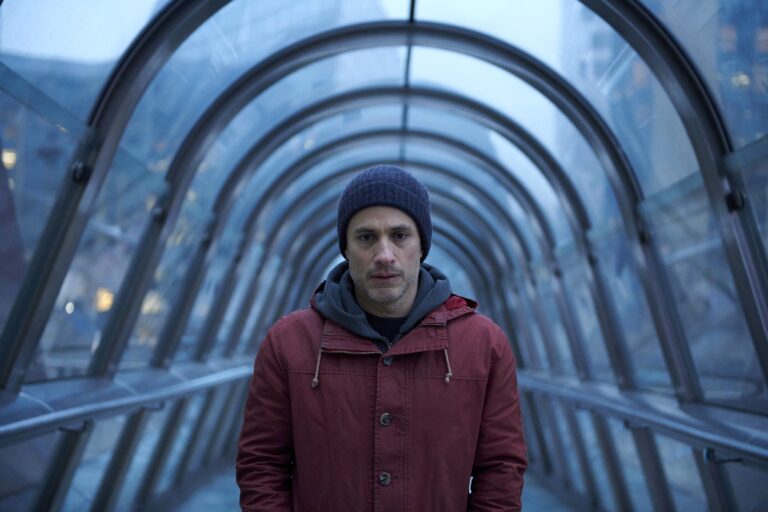Italian director Piero Messina crafts a somber sci-fi narrative about love, loss and the ethical quandaries of advanced technology with Another End, premiering in competition at the 74th Berlinale. Gael Garcia Bernal plays Sal, a man grieving the sudden death of his girlfriend, Zoe. So consumed by grief is Sal that his sister Ebe (Bérénice Bejo) urges him toward a controversial therapy: transferring Zoe’s memories into another body, a technology developed by a mysterious company called Aeterna, who just so happens to be Ebe’s employer.
Unfortunately, this miraculous new technology has limits. First of all, the “host” body already belongs to another human being, so while the memory and personality of the “absent one” will be exactly the same, they won’t necessarily resemble the person they were. Secondly, the hosts have their own consciousness suspended during the period in which the absent one occupies the body, but prolonged exposure can lead to both sets of memories blending together, a dangerous proposition that could irreparably damage the host; thus, there’s a hard limit to the number of times each body can undergo the procedure.
Cognizant of the limitations without perhaps being fully aware of their ramifications, Sal agrees to Ebe’s suggestion, and is soon reunited with Zoe, in the guise of a young woman named Ava (Renate Reinsve). As Sal’s initial feelings of apprehension dissolve, he embraces the resurrection of his lost love and the future they never had a chance to experience. Bernal and Reinsve have wonderful chemistry, which makes their interactions all the more heartbreaking, because we know their time together is finite. But as the clock ticks down, Sal finds himself increasingly unwilling to say goodbye to Zoe a second time, and he embarks on a perilous path full of ill-advised decisions with far-reaching consequences.
Another End shines brightest in its exploration of grief, and our innate human desire to cheat death. Sal’s journey is a deeply personal one, his every action driven by the crippling emptiness left by Zoe’s absence. Messina doesn’t shy away from portraying the messy reality of grief and its suffocating and all-encompassing loneliness. Likewise, the complex ethical questions posed by the memory transfer technology are intriguing, prompting one to ponder the boundaries of science and the true meaning of human connection, even if it comes at the cost of blurring the lines of reality.
However, the film’s exploration of these themes feels surface-level, at best, and the moral and ethical dilemmas take a backseat to dense exposition of Aeterna’s technology and its inner workings. Another End‘s glacial pacing also works against it, robbing key moments of their emotional punch, and a plot twist that arrives in the final moments not only lands with a thud, but feels implausible (if not downright impossible) given the reality the film has established. There are big ideas here, about the human cost of progress and the delicate balance between cherishing the past and confronting the inevitable realities of life and death, but the film’s muddled and murky execution falls short of making a lasting impact.

